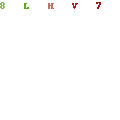
A unique business opportunity!
in http://agent.ibuk.com/
If you enjoy books and are prepared to work for yourself in your own home then this could be the ideal opportunity for you.
You do not need to have any previous experience of buying or selling books and no complicated IT skills are required. As an IBUK agent you will be self employed but working in association with IBUK, which is one of the largest internet bookshops in Europe. You may like to visit our website www.ibuk.com which has over 2,000,000 books for sale to customers all over the world.
As an IBUK Agent you will be able to buy good quality secondhand books in your area. This may be easier than you at first think because nationwide there is a huge surplus of these books available for sale at very modest prices. We will show you exactly what type of books to buy, where to buy them and the prices you should be paying.
Because we are able to offer second hand books at very competitive prices they sell very well all over the world. You don’t have to sell any books yourself. IBUK will sell your books by listing them on major bookselling websites around the world. This guarantees that your books will sell at a fast rate. IBUK also take care of all credit card and cheque payments and they will also pay you the postage cost for each of your books when they are sold to a customer anywhere in the world.
Sunday, October 5, 2008
saturday job A unique business opportunity!
Tuesday, March 4, 2008
Jumaat atau Friday
Seperti mana yang kita tahu di dalam agama islam hari jumaat atau Friday adalah penghulu segala hari iaitu hari jang penuh bermakna daripada sekelian hari di dalam satu minggu,jumaat atau Friday sememang nya dikenali sebagai hari yang penuh bermakna dan misteri juga kepada banyak pengamal agama-agama lain di seluruh dunia
Mari kita sama-sama menghayati petikan dibawah ini sebagai satu pengetahuaan bukanlah sebagai ikutan
Sekian
Terima kasih
By day time
Friday, February 29, 2008
Monday,isnin adalah segalanya
Seperti mana yang kita tau isnin ada mempunyai bermacam-macam makna,perbezaan pendapat ini membuatkan kita terbawa-bawa dengan lagenda ataupun mitos yang di bawa oleh orang yang terdahulu,
Monday (pron. IPA: /ˈmʌndeɪ, ˈmʌndi/) is the day of the week between Sunday and Tuesday. It gets its name from the Moon, which in turn gets its name from Mani (Old English Mona), the Germanic Moon god. Similarly, the names in Latin-based languages such as the Italian name (Lunedì), the French name (lundi), the Spanish name (Lunes), and the Romanian name (Luni) come from the Latin name for Moon, luna. The Russian word, eschewing pagan names, is понедельник (poniediélnik), meaning "after Sunday." In most of the Indian Languages, the word for Monday is Somvar, with Soma being the Sanskrit name for the moon. The Japanese word for Monday is getsuyōbi (月曜日) which means day of the moon.
This postcard, sent in 1907 and captioned "Monday Morning in
This postcard, sent in 1907 and captioned "Monday Morning in





